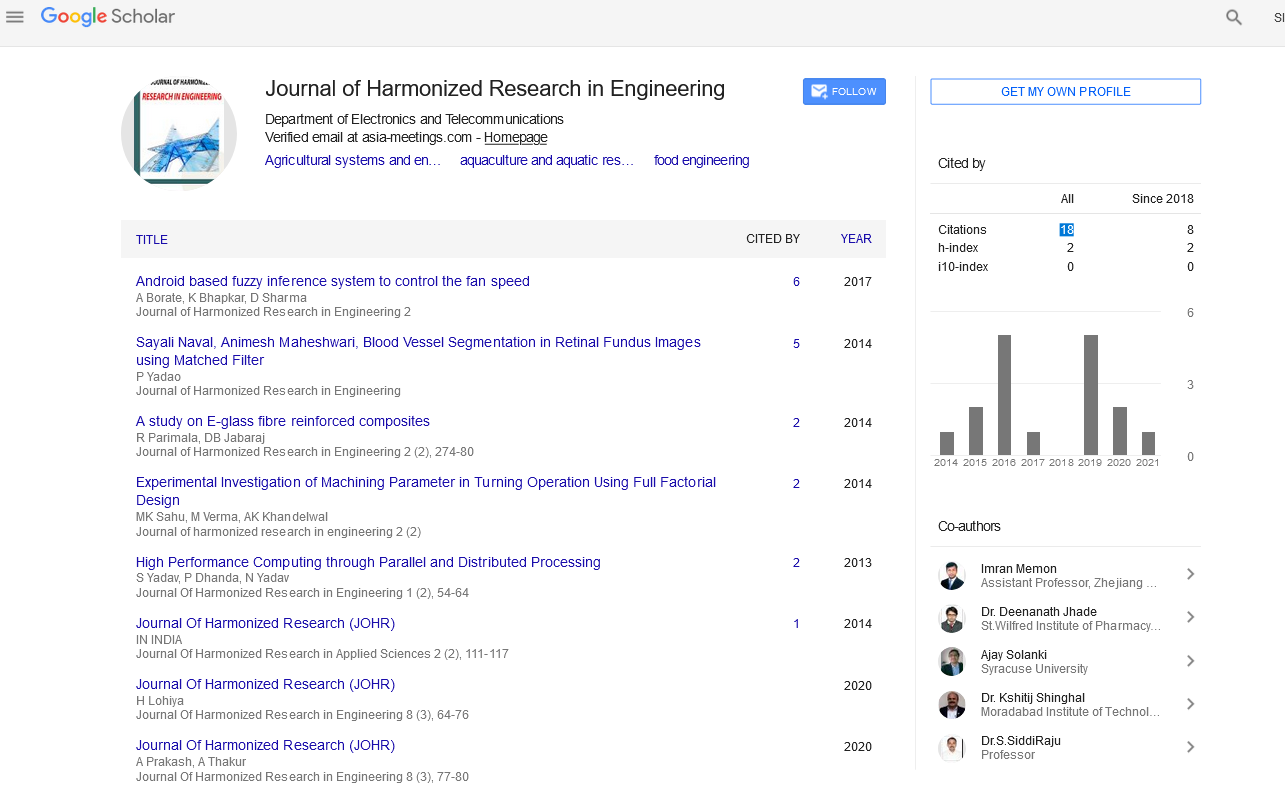Commentary - (2022) Volume 10, Issue 3
USING INFORMATION TECHNOLOGY TO CHANGE HEALTH CARE COMMUNICATION
Ishida Salwa*Received: Sep 01, 2022, Manuscript No. JHRE-22-77540; Editor assigned: Sep 05, 2022, Pre QC No. JHRE-22-77540 (PQ); Reviewed: Sep 19, 2022, QC No. JHRE-22-77540; Revised: Sep 27, 2022, Manuscript No. JHRE-22-77540 (R); Published: Oct 05, 2022, DOI: : 10.30876/2347-7393.22.10.203
Description
In the healthcare industry, good communication is essential for providing patients with safe, high-quality care. New techniques to efficiently interact and share information in the healthcare sector are now available because to recent technological breakthroughs. It takes extensive collaboration and effective and efficient communication to deliver safe, high-quality healthcare. More than half of medical mistakes are attributed to poor communication, and it has been demonstrated that information transfer delays among healthcare professionals lead to avoidable mistakes and ineffective patient care.
Most healthcare workers use smartphones; according to one research, up to 92% of doctors say they use them regularly every day while at work. It has been demonstrated that the use of smart phones in healthcare settings increases communication effectiveness and causes quicker response times while providing time-sensitive care. Instant access to time-sensitive information can be made possible through smartphone software programmes, or “apps”. The hospital switchboard continues to be the primary resource used by healthcare professionals to find contact information for hospital sites, despite smartphone technology’s growing accessibility and acceptance.
Mobile devices are now a crucial component of both the professional and personal life of healthcare personnel. Healthcare professionals can quickly and easily access information with the use of smart phones. They have been demonstrated to facilitate quick communication and enhance employee accessibility and responsiveness. According to studies, the majority of healthcare professionals think hospital systems should incorporate smart phones. Delivering healthcare that is high-quality, safe, and effective is a complex endeavour that necessitates the precise coordination of many different healthcare specialists while caring for a single patient.
The provision of services in hospitals is greatly influenced by the hospital switchboard. They not only connect patients and family members to their healthcare providers but also to other healthcare professionals. They play a crucial role in the hospital by coordinating communication during crises and emergencies.
Only 36% of the 219 UK hospitals with switchboards fulfilled the 20 second goal response time, according to a recent audit. Switchboards’ primary objective and efficiency metric is response time. Over-reliance on hospital switchboard staff consumes a large amount of manpower and causes delays in responding to calls and inquiries for services unrelated to directories. Effective communication between healthcare personnel may be hampered by the use of the hospital switchboard for directory inquiries, which could affect patient care and clinical judgement. Therefore, lowering the call burden aids in enhancing response times, which increases the effectiveness of communication between healthcare providers?
Workflow, efficiency, and communication can all be improved in the healthcare industry by using mobile devices. The quality of clinical discussions, the quality of patient care, and the speed of response have all improved as a result of the usage of smart phones, according to a number of studies. According to a different study, smartphones added value by making it simple to communicate non-urgent information and by helping with triage, prioritisation, and quick communication in emergency circumstances in the healthcare setting. Smart phone use can enhance the efficacy and efficiency of communication among healthcare professionals and decrease interruptions to patient care in hospitals.
Mobile devices can benefit interprofessional interactions amongst healthcare professionals, as well as the efficiency and quality of communication. They can also facilitate better decision-making because important decision-makers are more readily available.
Healthcare professionals frequently employ antiquated practises to use a directory in a hospital setting to organise and administer patient care, despite using cutting-edge technology both at work and outside of it. The need for immediate and correct communication among healthcare professionals working in a hospital setting, along with the potentially negative effects of delayed or inaccurate communication, means that new communication-improving technologies need to be thoroughly researched. Our study illustrates a potential application of mobile technology in the hospital context; nevertheless, more leadership and funding are needed to fully embrace the current digital era and foster future innovation and quality enhancement.

Google Scholar citation report
Citations : 43
Journal of Harmonized Research in Engineering received 43 citations as per google scholar report









